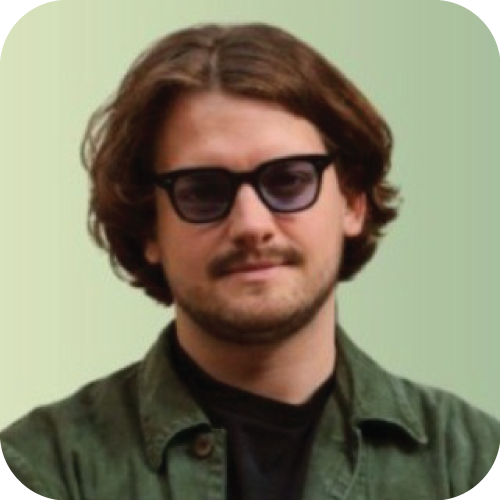Episode 14: High Yield Tourism Podcast
Discover how digital nomads are revolutionizing travel patterns and transforming destinations worldwide, as revealed by Milos Pelucha, co-founder of Destinova, fresh from the Bansko Nomad Fest. Drawing from a decade of nomadic experience, Milos distinguishes between true digital nomads and temporary remote workers, highlighting crucial differences that tourism stakeholders must understand.
With:

Gary
Bowerman

Miloš Pelucha
Listen to it now on your favourite podcast channels:
Summary
It’s Time to Rethink Digital Nomadism & Global Mobility in High-Yield tourism
In the High-Yield Tourism Podcast, Gary Bowerman interviews Miloš Pelucha, co-founder of Destinova and a passionate digital nomad. Fresh from the Bansko Nomad Fest, Miloš shares his decade-long journey into digital nomadism, which began during his studies across Europe.
He emphasizes the need for tourism stakeholders to understand this growing segment, highlighting the distinction between digital nomads, who prioritize travel as a lifestyle, and remote workers who may travel temporarily. Miloš advocates for strategies that cater to these evolving traveler profiles, reflecting on the community-focused spaces he aims to create.
Gary and Miloš discuss the evolving concept of digital nomadism, pointing out different perceptions of the term worldwide. In Europe, digital nomads often face backlash related to gentrification, while in East Asia, they are welcomed as a means to attract talent.
They also recount their experiences at the Bansko Nomad Fest in Bulgaria, likening it to Glastonbury for nomads, and emphasize its role in networking and sharing insights on entrepreneurship and remote work. The speakers note that the pandemic has accelerated the growth of this lifestyle, prompting the travel industry to adapt to the needs of this emerging demographic.
In this insightful dialogue, Miloš shares his experiences engaging with tourism boards worldwide about the benefits of digital nomadism. He highlights the potential for nomads to boost local economies, especially during off-peak seasons, noting they spend significantly more than average tourists.
Despite his efforts, he faces challenges due to a lack of awareness and collaboration among tourism and immigration officials. Miloš emphasizes the importance of education and building community-centered ecosystems to enhance understanding and support for digital nomads. He advocates for stronger connections between tourism bodies and this emerging lifestyle.
The podcast also discusses the changing landscape of digital nomad visas, emphasizing that while they can signify a country’s willingness to attract talent and investment, many programs remain mere PR stunts. Thailand’s DTV visa is highlighted as a positive example that addresses past visa run issues, creating a welcoming environment for nomads. However, the speakers acknowledge complexities such as taxation concerns and misperceptions that portray nomads as primarily wealthy individuals seeking to escape high taxes. Ultimately, as the movement evolves, countries should aim to be inclusive of nomads from diverse backgrounds.
The conversation continues on the evolving landscape of digital nomadism, stressing its significance as a lifestyle rather than just a work arrangement. The speakers highlight the need for countries to tailor visa policies to attract nomads, suggesting incentives that could benefit local communities, such as university partnerships or internships. They note the vibrant growth of digital nomad communities in places like China and Southeast Asia, where individuals seek to balance work and life in preferred locations, mirroring trends observed in regions like Portugal and Thailand.
The dialogue also touches on Armenia, where traveler engagement is increasing despite a smaller tourism budget. They reflect on their experiences at the Yerevan Hospitality Investment Forum, emphasizing Armenia’s hospitable culture and the untapped potential for co-living spaces. The conversation explores how Armenia could gain a competitive edge by enhancing its visibility and infrastructure, and they note that the private sector shows more significant interest in promoting these developments than the government.
Gary and Miloš discuss the growing interest in co-living concepts and the potential impact of digital nomadism on rural revitalization. They stress the need for dialogue among tourism authorities, the private sector, and local communities to shift perceptions of remote workers from being seen as a burden to potential beneficiaries. Highlighting successful projects like rooral.co in Spain, they share insights on how embracing digital nomads can lead to sustainable growth in overlooked areas, fostering a ‘borderless life’ that enriches both visitors and locals.
Miloš shares his upcoming plans to travel to Morocco and the Azores, where he intends to launch a co-living space for outdoor enthusiasts. He underscores the importance of promoting destinations while attracting visitors who appreciate their unique offerings. The conversation highlights the evolving nature of tourism, including digital nomadism and remote work, emphasizing the need for a deeper understanding in this area.
Key Highlights
Digital nomadism differs significantly from temporary remote work, requiring unique strategies and support.
Digital nomads contribute substantial economic benefits to local communities, often revitalizing struggling areas.
Tourism stakeholders must actively educate themselves about nomadic lifestyles to create environments that facilitate this new form of travel.
High-Yield Tourism
68 Circular Road #02-01
Singapore 049422
Email: hello@highyieldtourism.com





